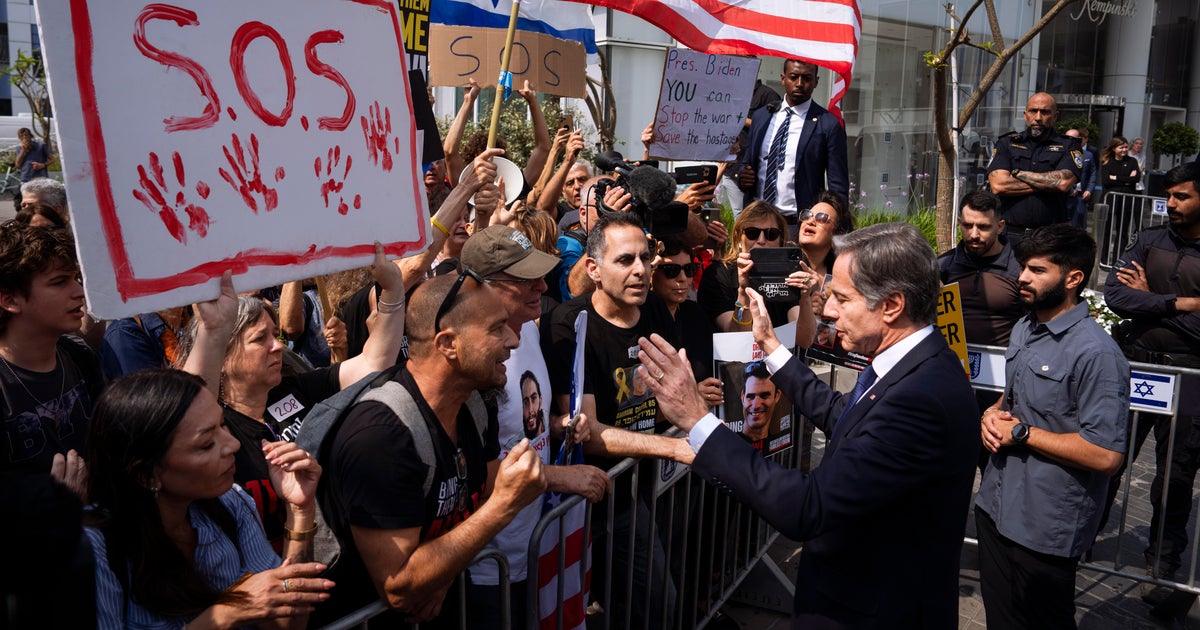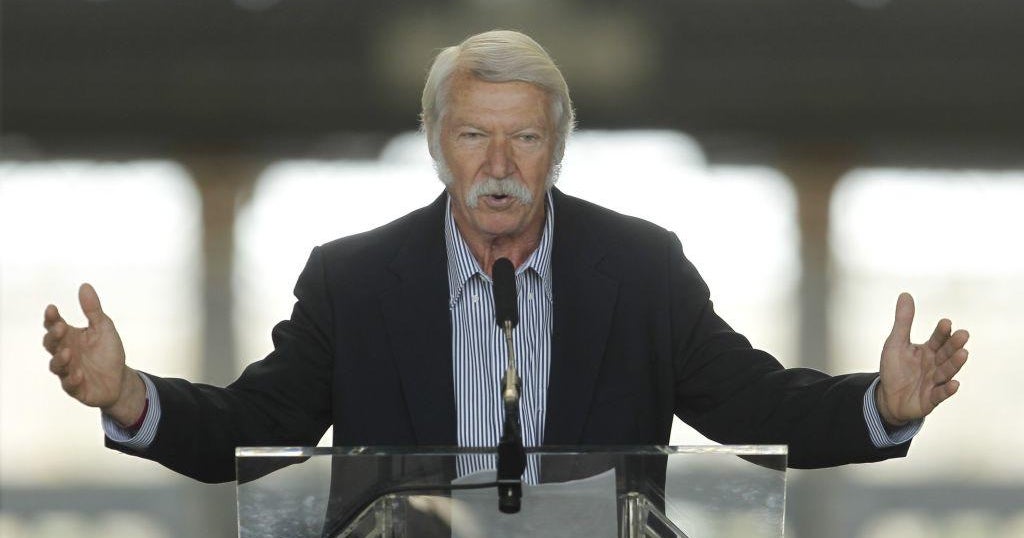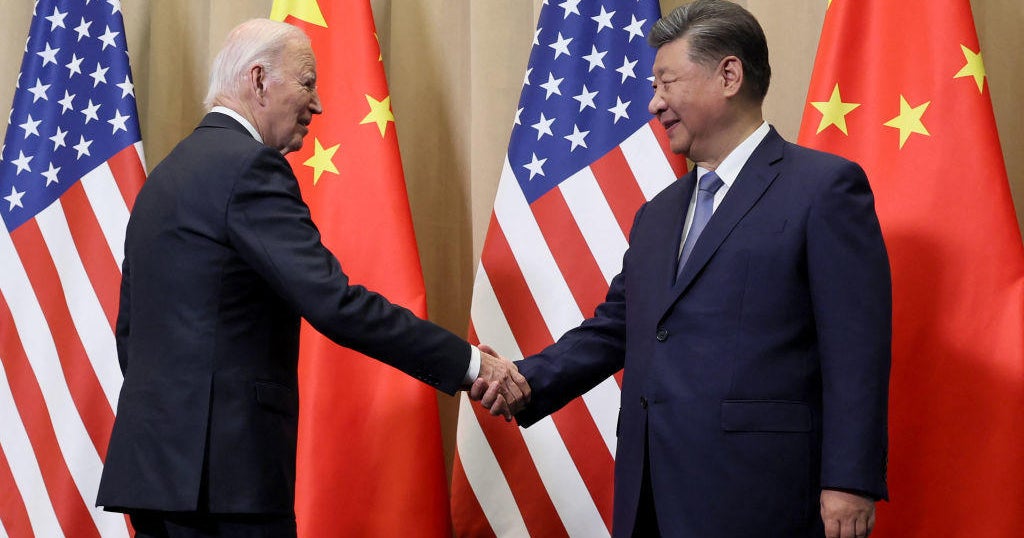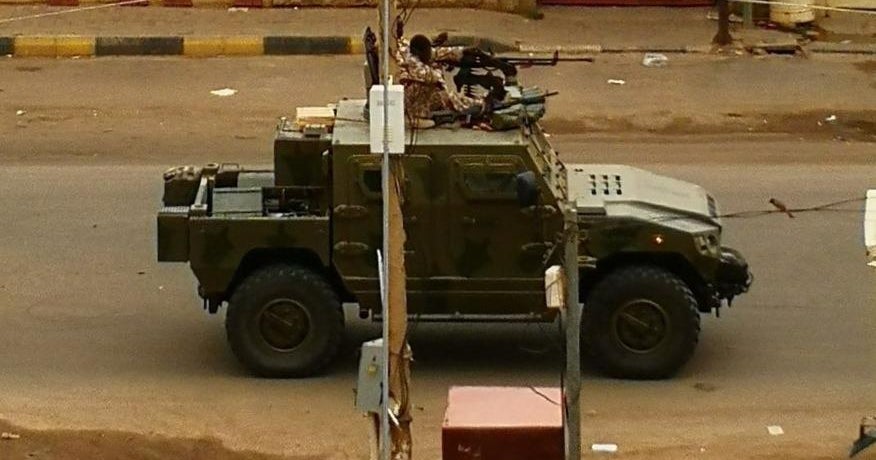CBS News
In Israel, Blinken says Hamas must accept cease-fire deal, offers “cautious optimism” to hostage families

Tel Aviv — Secretary of State Antony Blinken was back in Israel Wednesday morning for his seventh visit to the country since Hamas militants staged their bloody Oct. 7 terror attack on the Jewish state, instantly sparking the war in the group’s Gaza Strip stronghold.
Blinken said as he arrived that the Biden administration was “determined” to see Hamas and Israel agree to a cease-fire in the conflict, which health officials in the Hamas-run Palestinian territory say has killed more than 34,000 people, most of them women and children.
Desperate for more American support, Israelis rallied outside Blinken’s Tel Aviv hotel, some of them holding signs voicing hope that U.S. pressure will help bring home the remaining 133 hostages still thought to be held in Gaza, including five U.S. nationals still thought to be alive.
Blinken returned to Israel after stops in Jordan and Saudi Arabia, and he met Wednesday with both Israeli President Isaac Herzog and Prime Minister Benjamin Netanyahu to discuss the latest proposal for a cease-fire. Hamas leaders have been reviewing that draft for a couple days and were expected to respond as soon as Wednesday.
“We are determined to achieve a cease-fire that will bring the abductees home, and to achieve it now,” Blinken told Herzog as they stood before news cameras on Wednesday. “The only reason a deal will not be reached is because of Hamas. There is an offer on the table, and as we said, no delays, no excuses.”
Blinken told Israeli demonstrators outside his hotel in Tel Aviv on Wednesday that he’d delivered the same message to the families of remaining hostages with whom he met soon after arriving back in Israel.
“Bringing your loved ones home is at the heart of everything we’re trying to do, and we will not rest until everyone — man, woman, soldier, civilian, young, old — is back home,” he told the group. “There is a very strong proposal on the table right now. Hamas needs to say yes and needs to get this done. That is our determination, and we will not rest, we will not stop until you’re reunited with your loved ones. So please keep strong, keep the faith. We will be with you every single day until we get this done.”
Oded Balilty/AP
It can’t possibly happen soon enough for dozens of families, including Aviva Siegel’s. Her American husband Keith is still among those being held by Hamas, 208 days after he was seized on Oct. 7.
Over the weekend, he appeared in a Hamas propaganda video. For Siegel, it was proof, at least, that her husband was still alive.
“I think the grief and anguish is unimaginable,” she told CBS News in an emotional interview. “I feel like I’m broken up into pieces… I know that Keith has had enough. My family’s had enough. My country’s had enough.”
Aviva was a hostage herself, but she was released after 51 days in captivity.
She and her daughter were among the relatives of American hostages who had a face-to-face with Blinken on Wednesday.
“The feeling was really grateful,” Aviva’s daughter Elan told CBS News after the meeting. “I think we all feel, and not only the American citizens, I think Israel feels, really grateful for what the United States has been doing since October 7th.”
Hostage Families Forum Headquarters
A statement from the collective Hostages Families Forum Headquarters, which represents all of the captives’ families, characterized the discussion with Blinken as “positive, with Blinken conveying cautious optimism about the emerging deal for their release.”
In Jerusalem, Blinken was also pushing Netanyahu to increase the flow of desperately needed aid into Gaza and ensure its safe distribution. Israel has taken steps to allow more aid in by land and sea, and aid agencies acknowledge and uptick, but they say it isn’t enough to stave off the threat of famine facing tens of thousands of Palestinian civilians in the enclave.
CBS News’ Tucker Reals contributed to this report.
CBS News
Bela Karolyi, polarizing U.S. gymnastics coach, dies at 82

Bela Karolyi, the charismatic if polarizing gymnastics coach who turned young women into champions and the United States into an international power, has died. He was 82.
A spokesperson for USA Gymnastics confirmed to CBS News by email that Karolyi died Friday. No cause of death was given.
Karolyi and wife Martha trained multiple Olympic gold medalists and world champions in the U.S. and Romania, including Nadia Comaneci and Mary Lou Retton.
Ron Jenkins/Fort Worth Star-Telegram/Tribune News Service via Getty Images
“A big impact and influence on my life,” Comaneci, who was just 14 when Karolyi coached her to gold for Romania at the 1976 Montreal Olympics, posted on Instagram.
The Karolyis defected to the United States in 1981 and over the next 30-plus years became a guiding force in American gymnastics, though not without controversy. Bela helped guide Retton — all of 16 — to the Olympic all-around title at the 1984 Games in Los Angeles and memorably helped an injured Kerri Strug off the floor at the 1996 Games in Atlanta after Strug’s vault secured the team gold for the Americans.
Karolyi briefly became the national team coordinator for USA Gymnastics women’s elite program in 1999 and incorporated a semi-centralized system that eventually turned the Americans into the sport’s gold standard. It did not come without a cost. He was pushed out after the 2000 Olympics after several athletes spoke out about his tactics.
It would not be the last time Karolyi was accused of grandstanding and pushing his athletes too far physically and mentally.
During the height of the Larry Nassar scandal in the late 2010s — when the disgraced former USA Gymnastics team doctor was effectively given a life sentence after pleading guilty to sexually assaulting gymnasts and other athletes with his hands under the guise of medical treatment — over a dozen former gymnasts came forward saying the Karolyis were part of a system that created an oppressive culture that allowed Nassar’s behavior to run unchecked for years.
Still, some of Karolyi’s most famous students were always among his staunchest defenders. When Strug got married, she and Karolyi took a photo recreating their famous scene from the 1996 Olympics, when he carried her onto the medals podium after she vaulted on a badly sprained ankle.
CBS News
Mike Tyson says he has “no regrets” after losing boxing match to Jake Paul

Despite losing his boxing match to Jake Paul, Mike Tyson in a social media post Saturday said he had “no regrets” to getting “in ring one last time.”
The boxing legend was defeated by social media star Jake Paul in a highly anticipated fight on Friday night with an age difference of over three decades between the two contenders.
Netflix said Saturday that 60 million households worldwide tuned in to watch the match. The two fighters went eight full rounds, with each round two minutes long. Paul defeated Tyson by unanimous decision and the 27-year-old upset boxer and 58-year-old former heavyweight champion hugged afterward.
Paul was expected to earn about $40 million from the fight, and Tyson was expected to take around $20 million for the fight, according to DraftKings and other online reports.
Getty Images
Tyson said on his social media that “this is one of those situations when you lost but still won. I’m grateful for last night.”
The fight almost didn’t happen after Tyson experienced an ulcer flare-up while on a plane in March. He addressed his illness Saturday, writing that he “almost died in June.” He said he had eight blood transfusions and “lost half my blood and 25lbs in hospital and had to fight to get healthy to fight so I won.”
Tyson retired from boxing in 2005 after a 20-year career. He last fought in a 2020 exhibition match against former four-division world champ Roy Jones Jr.
“To have my children see me stand toe to toe and finish 8 rounds with a talented fighter half my age in front of a packed Dallas Cowboy stadium is an experience that no man has the right to ask for. Thank you,” he said.
Alex Sundby and
contributed to this report.
CBS News
In their final meeting, Xi tells Biden he is “ready to work with a new administration”

In their final meeting, China’s leader Xi Jinping told U.S. President Biden that his nation was “ready to work with a new administration,” as President-elect Donald Trump prepares to take over.
The two leaders gathered Saturday on the sidelines of the annual Asia-Pacific Economic Cooperation summit. Mr. Biden was expected to urge Xi to dissuade North Korea from further deepening its support for Russia’s war on Ukraine. It marked their first in-person meeting since they met in Northern California last November.
Without mentioning Trump’s name, Xi appeared to signal his concern that the incoming president’s protectionist rhetoric on the campaign trail could send the U.S.-China relationship into another valley.
“China is ready to work with a new U.S. administration to maintain communication, expand cooperation and manage differences so as to strive for a steady transition of the China-U.S. relationship for the benefit of the two peoples,” Xi said through an interpreter.
LEAH MILLIS/POOL/AFP via Getty Images
Mr. Biden, meanwhile, spoke in broader brushstrokes about where the relationship has gone and reflected not just on the past four years, but on their long relationship.
“Over the past four years, China-U.S. relations have experienced ups and downs, but with the two of us at the helm, we have also engaged in fruitful dialogues and cooperation, and generally achieved stability,” he said.
Mr. Biden and Xi, with top aides surrounding them, gathered around a long rectangle of tables in an expansive conference room at Lima’s Defines Hotel and Conference Center.
There’s much uncertainty about what lies ahead in the U.S.-China relationship under Trump, who campaigned promising to levy 60% tariffs on Chinese imports.
Bobby Djavaheri, president of Los Angeles-based Yedi Houseware Appliances — which manufactures its products in China — told CBS News in an interview this week that such tariffs “would decimate our business, but not only our business. It would decimate all small businesses that rely on importing.”
Trump has also proposed revoking China’s Most Favored Nation trade status, phasing out all imports of essential goods from China and banning China from buying U.S. farmland.
Already, many American companies, including Nike and eyewear retailer Warby Parker, have been diversifying their sourcing away from China. Shoe brand Steve Madden says it plans to cut imports from China by as much as 45% next year.
White House national security adviser Jake Sullivan said Biden administration officials will advise the Trump team that managing the intense competition with Beijing will likely be the most significant foreign policy challenge they will face.
It’s a big moment for Mr. Biden as he wraps up more than 50 years in politics. He saw his relationship with Xi as among the most consequential on the international stage and put much effort into cultivating that relationship.
Mr. Biden and Xi first got to know each other on travels across the U.S. and China when both were vice presidents, interactions that both have said left a lasting impression.
“For over a decade, you and I have spent many hours together, both here and in China and in between. And I think we’ve spent a long time dealing with these issues,” Mr. Biden said Saturday.
But the last four years have presented a steady stream of difficult moments.
The FBI this week offered new details of a federal investigation into Chinese government efforts to hack into U.S. telecommunications networks. The initial findings have revealed a “broad and significant” cyberespionage campaign aimed at stealing information from Americans who work in government and politics.
U.S. intelligence officials also have assessed China has surged sales to Russia of machine tools, microelectronics and other technology that Moscow is using to produce missiles, tanks, aircraft and other weaponry for use in its war against Ukraine.
And tensions flared last year after Mr. Biden ordered the shooting down of a Chinese spy balloon that traversed the United States.















